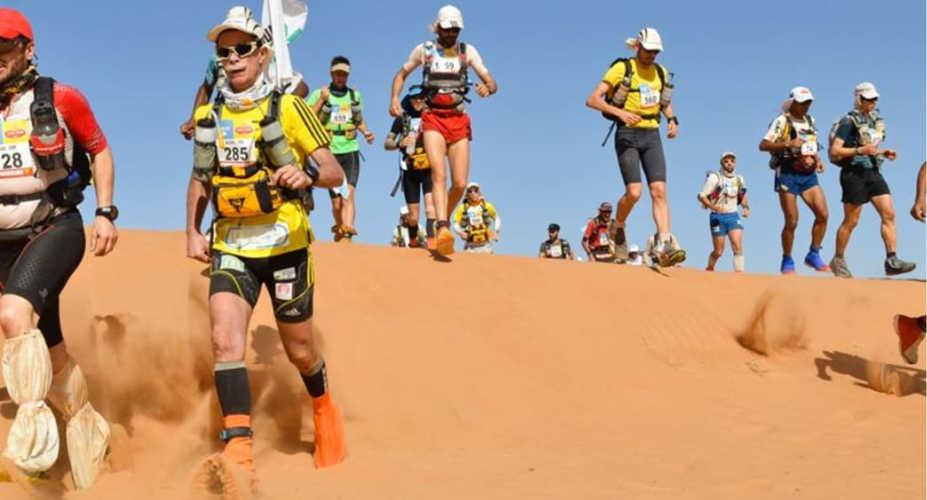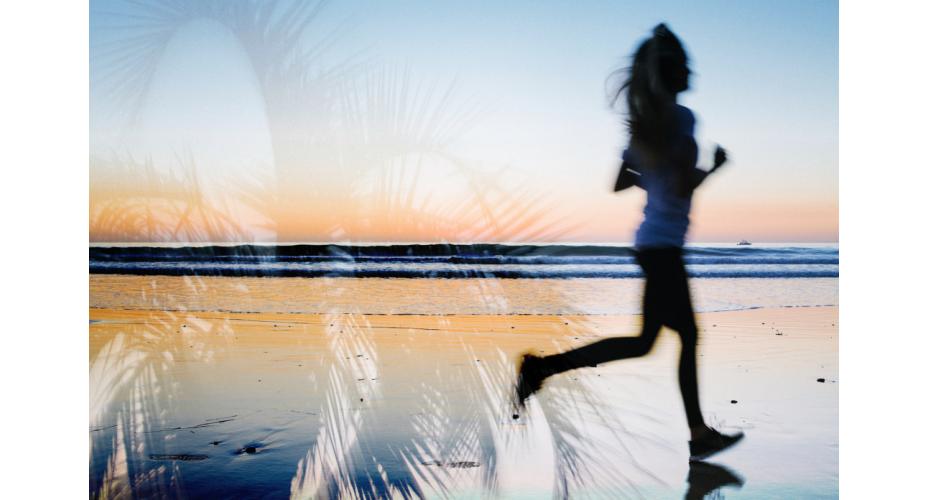
Don’t let the sun scupper your running this summer
Pictured: Marathon des Sables in the Sahara desert
Heatwaves seem to be occuring more and more frequently, and some have a great lack of experience in dealing with these occurances. Our first tip for running in a heatwave is not to obviously not head out for the usual lunch run at the peak for the day's heat – try and get out in the early morning or evening instead. And our second is look out for warnings about dangerous temperatures and particularly high levels of UV. Wear sun screen too--it might make you a little sweatier, but that’s a small price to pay for avoiding sunburn and long-term skin damage.
For more in-depth advice on how you can not only run in the heat, but excel in your running no matter how hot it gets, we’ve enlisted a trio of experts: Andy Page, Pure Sports Medicine’s strength and conditioning coach, Jason Taylor, running coach with we-run.co.uk, and Dr Andrew Murray, who has won races in the Sahara and Gobi deserts.
Adjust Your Outfit
This doesn’t just mean sticking on a pair of sun glasses (although that is a good idea). The temptation will be to wear as little clothing as possible, so a running vest is a good option, but remember to account for the risks of sunburn too and cover up if need be – especially when you’re going to be out for a long run.
“Light, synthetic fabrics that wick sweat away from the skin’s surface will help lower your body temperature even on the hottest of days,” says Page. “Avoid Lycra and compression garments because these can impair cooling.”
“It is very easy to dehydrate yourself by wearing layers that are too warm,” says Taylor. “Also, ensure your clothes don’t chafe – use Vaseline if required. I would recommend a lightweight running cap. As well as helping to shade your face, this will keep the worst of the heat away from your head.”
“I wear white or light-coloured loose-fitting clothing,” says Murray. “I will also wear sunscreen, and a Buff around my wrist to wipe excess sweat away.”
Hydrate, Hydrate, Hydrate
Remember you don’t just need water – you need electrolytes too.
“Electrolytes are lost through sweat in significant amounts and must be replaced,” says Taylor. “Replacing electrolytes is essential to keep your body hydrated, enhance performance and help prevent muscle cramps.”
Sports drinks often contain electrolytes and you can also use hydration tabs, which dissolve in water to create an electrolyte-rich drink. However, don’t just chug constantly during your exercise – there are risks to drinking too much water as well.
“Drinking too much water and diluting your blood can lead to hypoglycemia (low blood glucose) and hyponatremia (low sodium) and both are just as big a risk to your health and performance as dehydration,” says Page. “Steady consumption of food and water on hot days, including using sports drinks, is a better strategy than trying to take on large quantities of water in a short time.”
Steer Clear Of Cramp
“Cramping is often a by-product of poor hydration and diet in the first place, so careful control of these factors will be key,” says Page. “Stay hydrated, ideally with a sports drink for the sodium, or eat a light meal with water two hours before you train. These are the most effective strategies for staying clear of cramp.”
Look After Your Feet
“As the temperature increases, your feet will sweat more,” says Taylor. “Make sure your socks fit well and are in good condition. If need be, tape any hot spots or use blister protection such as Compeed.
“Always lace the running shoe from the bottom up so it is snug, but not so tight it feels like a tourniquet.”
Rest And Recover
You will probably want to jump straight in a freezing shower when you finish your run, but a tepid temperature is the smart choice.
“After stretching, take a lukewarm shower to cool your core temperature but be careful not to go too cold because the shock will stop the body from cooling and make you shiver, which will actually raise your body temperature,” says Page.
Written by Nick Harris-Fry for Coach and legally licensed through the Matcha publisher network. Please direct all licensing questions to legal@getmatcha.com.







